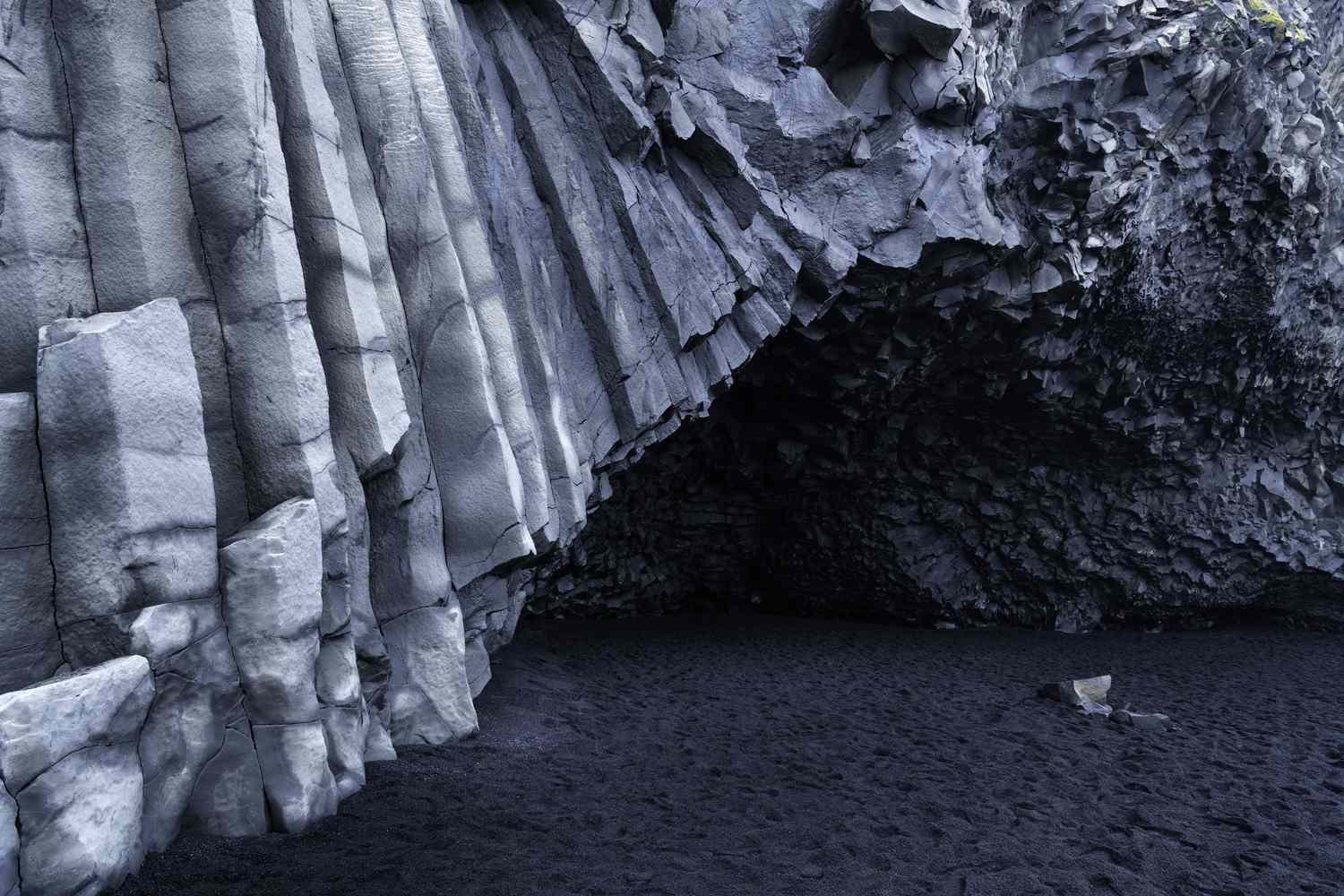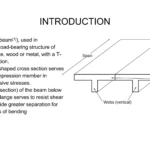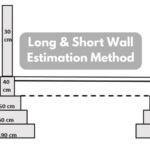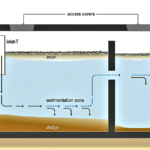Introduction
Basalt is one of the most commonly used construction materials in India. It is a dark-colored, fine-grained, igneous rock formed from the rapid cooling of lava flows. Due to its high strength, durability, and resistance to weathering, basalt rock has become a preferred material for road construction, building aggregates, railway ballast, and several architectural applications.
In India, basalt is widely available and mined in states like Maharashtra, Gujarat, Karnataka, Tamil Nadu, and Madhya Pradesh. Its affordability, abundance, and versatile uses make it one of the most popular construction materials in the country.
This article provides a detailed guide on basalt rock prices in India, its types, properties, uses, mining regions, and IS code standards. It also explains why basalt is a preferred material in civil engineering projects and infrastructure development.
What is Basalt Rock?
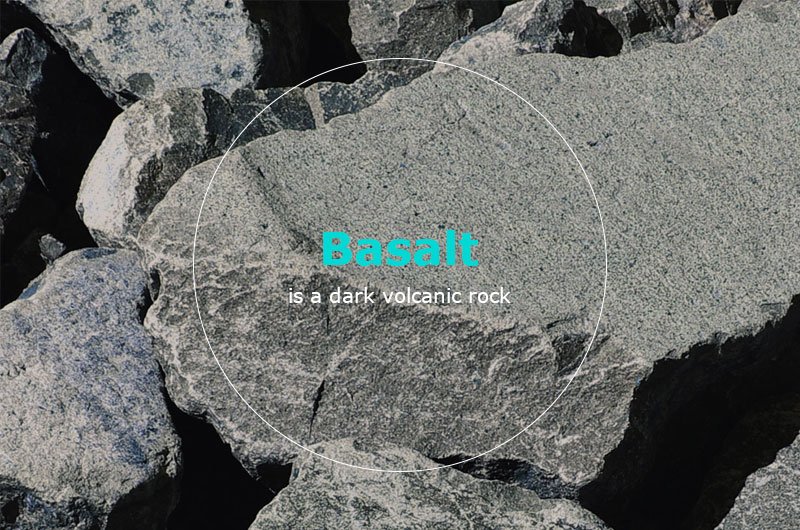
Basalt is a volcanic igneous rock composed mainly of pyroxene, plagioclase feldspar, and olivine minerals. It usually appears black or dark grey in color and is fine-grained due to its rapid cooling at or near the Earth’s surface.
Key Properties of Basalt Rock
| Property | Details |
|---|---|
| Color | Dark grey to black |
| Texture | Fine-grained |
| Compressive Strength | 100–300 MPa |
| Density | 2.7–3.0 g/cm³ |
| Porosity | Low |
| Durability | High |
| Weather Resistance | Excellent |
Basalt Rock Price in India (2025)
The price of basalt rock in India varies depending on location, quality, type of processing, and demand. On average, basalt is one of the most cost-effective natural stones available.
| Basalt Product | Approx. Price (₹) | Usage |
|---|---|---|
| Basalt Blocks | ₹1,200 – ₹2,500 per ton | Road base, foundations |
| Basalt Aggregates (20mm) | ₹650 – ₹1,200 per ton | Concrete, asphalt mixes |
| Basalt Slabs | ₹100 – ₹250 per sq. ft | Flooring, cladding, countertops |
| Basalt Tiles | ₹80 – ₹200 per sq. ft | Interior and exterior finishes |
| Basalt Dust / Powder | ₹800 – ₹1,500 per ton | Fillers, decorative stone finishes |
| Basalt Railway Ballast | ₹1,000 – ₹1,800 per ton | Railway track construction |
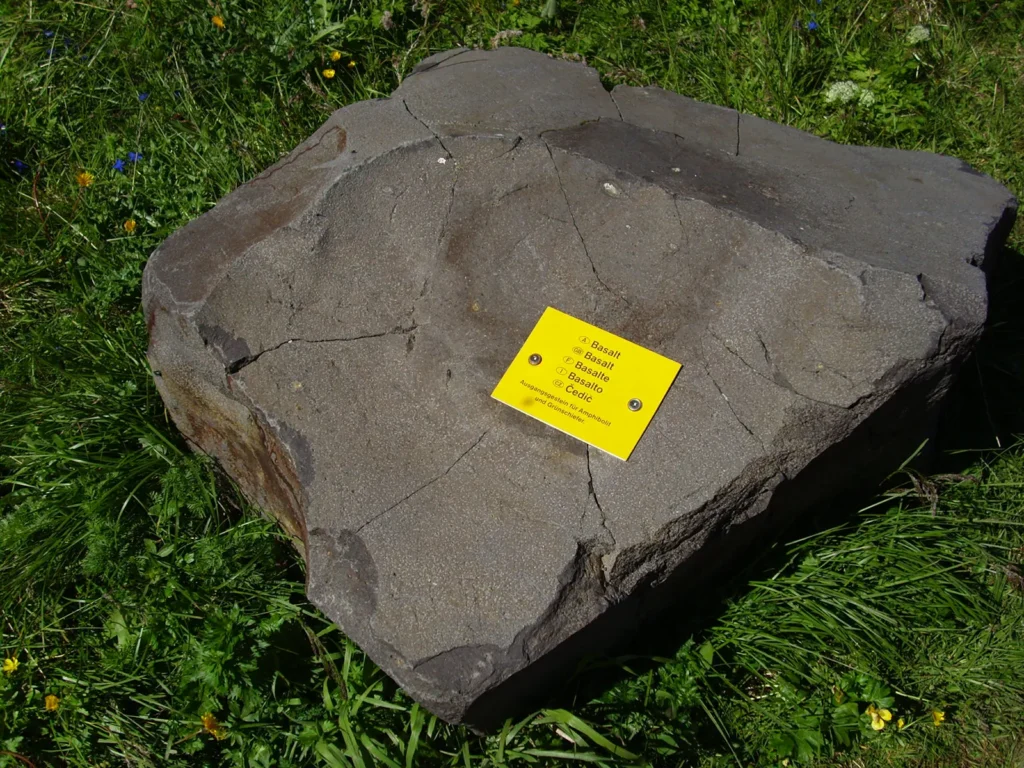
Note: Prices vary across Indian states based on quarry location, transportation, and processing costs.
Top Basalt Producing States in India
Basalt reserves in India are extensive, and certain states dominate production:
| State | Major Locations | Applications |
|---|---|---|
| Maharashtra | Pune, Nashik, Kolhapur, Nagpur | Roads, aggregates, construction |
| Gujarat | Rajkot, Bhavnagar, Junagadh | Railway ballast, architecture |
| Karnataka | Belagavi, Chitradurga, Tumkur | Concrete, decorative stone |
| Tamil Nadu | Coimbatore, Salem | Flooring, tiles, slabs |
| Madhya Pradesh | Bhopal, Sagar, Rewa | Asphalt mixes, stone cladding |
| Rajasthan | Jodhpur, Barmer | Countertops, landscaping |
Uses of Basalt Rock in India
Basalt is a multi-purpose stone with a wide range of construction and architectural applications.
1. Construction Aggregates
- Basalt is widely used as aggregates in concrete and asphalt mixes.
- Provides high compressive strength.
- Used for road bases, bridges, and flyovers.
2. Road Construction
- Crushed basalt is a preferred material for highway pavements.
- Offers excellent load-bearing capacity.
- Commonly used in National Highway projects and state-level roads.
3. Railway Ballast
- Indian Railways uses basalt aggregates as railway ballast.
- Provides strength, drainage, and stability to tracks.
4. Architectural Applications
- Basalt is also used for flooring, cladding, staircases, and countertops.
- Its dark, polished finish makes it popular for luxury projects.
5. Basalt Fiber Production
- Basalt fibers are used in composite materials, pipes, automobiles, and aerospace.
- Increasing demand in industrial and infrastructure sectors.
Also Read What Is the Main Purpose of Using Stirrups During Construction?
Advantages of Using Basalt Rock
| Advantage | Details |
|---|---|
| Durability | High compressive strength and long lifespan |
| Weather Resistance | Withstands heat, moisture, and heavy rains |
| Cost-Effective | Lower price compared to granite or marble |
| Eco-Friendly | Minimal environmental processing required |
| Versatile Applications | Used in roads, bridges, flooring, and interiors |
Comparison Between Basalt and Granite
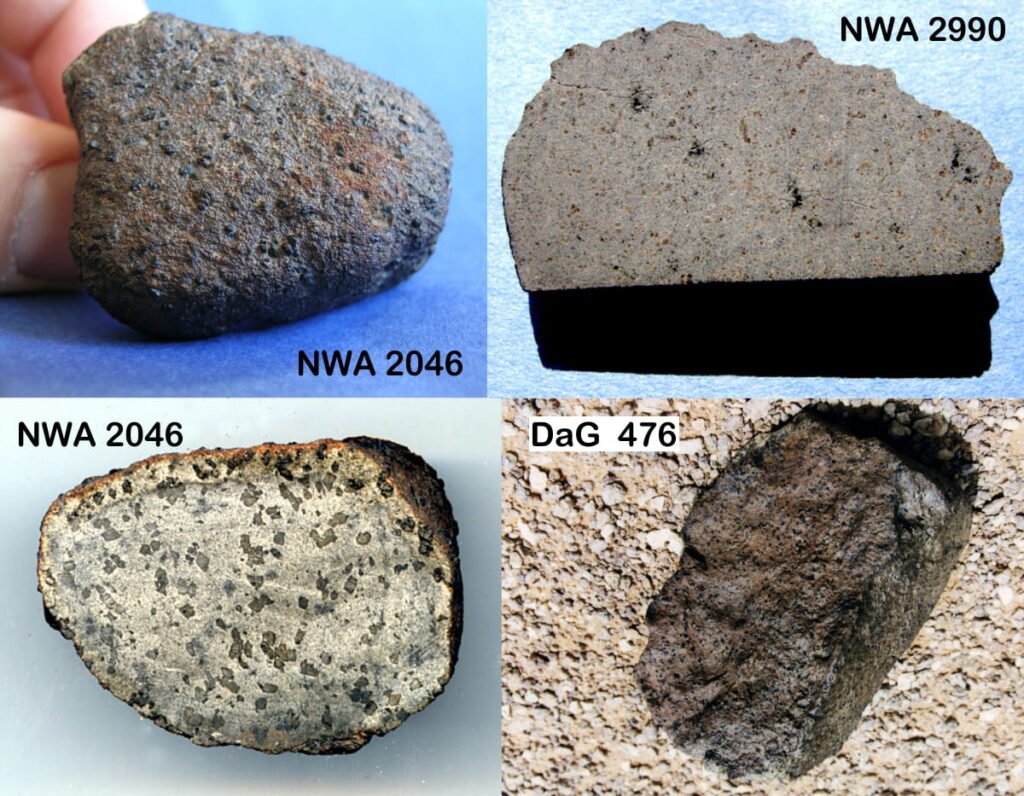
| Property | Basalt | Granite |
|---|---|---|
| Color | Dark grey to black | Light-colored, multi-toned |
| Texture | Fine-grained | Coarse-grained |
| Price | Lower | Higher |
| Uses | Aggregates, roads, cladding | Countertops, luxury interiors |
| Availability | Widely available in India | Limited to certain regions |
IS Codes Related to Basalt Rock
| IS Code | Description |
|---|---|
| IS 383:2016 | Specification for coarse and fine aggregates |
| IS 2386 | Methods of testing aggregates |
| IS 1597 | Stone masonry standards |
| IS 12070 | Flooring and cladding guidelines |
Following these Indian Standards ensures safety, durability, and quality in construction.
Future Demand of Basalt in India
With India’s growing infrastructure projects, the demand for basalt rock is increasing rapidly. Major drivers include:
- Highway construction under Bharatmala Pariyojana
- Railway modernization
- Smart cities and housing projects
- Growth of basalt fiber-based composites in industry
By 2030, basalt consumption in India is expected to double, making it a key material in the civil engineering sector.
FAQs on Basalt Rock
1. What is the current price of basalt rock in India?
Basalt aggregates cost ₹650 – ₹1,200 per ton, while basalt slabs are priced at ₹100 – ₹250 per sq. ft.
2. Where is basalt rock found in India?
Major deposits exist in Maharashtra, Gujarat, Karnataka, Tamil Nadu, and Madhya Pradesh.
3. Is basalt suitable for flooring?
Yes. Polished basalt slabs are widely used in flooring, cladding, and interior decoration.
4. Which IS code specifies basalt aggregate testing?
IS 383:2016 and IS 2386 provide testing guidelines for basalt aggregates.
5. Why is basalt preferred over granite for road construction?
Basalt is cheaper, more abundant, and has better load-bearing properties, making it ideal for roads and highways.
Conclusion
Basalt rock is one of the most widely used natural stones in India due to its strength, durability, and affordability. From road construction and railway ballast to architectural applications, basalt plays a vital role in the country’s infrastructure development.
For Indian builders, civil engineers, and contractors, understanding basalt prices, types, IS codes, and applications is essential for cost-effective and safe construction practices.
